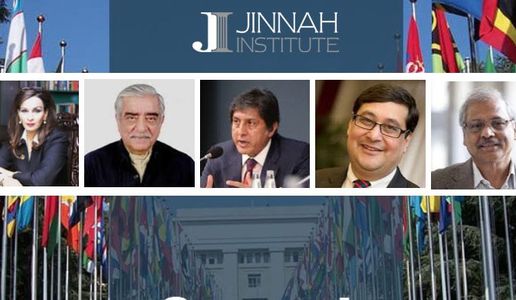Najam on Pakistan’s Foreign Policy Challenges
Dr. Adil Najam, Dean of the Frederick S. Pardee School of Global Studies and Professor of International Relations and of Earth and Environment, said he believes that the most important problem with Pakistan’s foreign policy is that there is none. Najam expressed this view when recently interviewed on Pakistan’s foreign policy for a policy paper published by the Jinnah Institute, one of Pakistan’s premier foreign policy Think Tanks.
Najam expressed this opinion in a July 2016 policy brief in its series ‘Second Opinion,’ which brings together responses on pressing international affairs issues by leading experts. This particular policy brief was titled: “Second Opinion – Foreign Policy in Crisis: Can Pakistan Overcome?”
Other experts also featured in the policy brief, included Senator Sherry Rehman, the former Ambassador of Pakistan to the United States, Pakistan’s former Foreign Secretary Amb. Najamuddin Shaikh and two of Pakistan’s leading security analysts Ejaz Haider and Zahid Hussain.
From the text of the article:
Adil Najam, Dean of the Pardee School of Global Affairs at Boston University, was of the opinion that the problem with Pakistan’s foreign policy is that that the country simply does not have one, despite the fact that there happen to be a number of statements, sentiments and slogans on piecemeal issues that have remained consistent with what the government thinks of as de facto foreign policy. Even on issues such as relations with India, on which there seems to be a doctrinal consensus, what one finds is tactics and not strategy. Certainly not a foreign policy – something that requires connecting the dots between different issues, covering all essential bases, and drawing up a path from here to there and that, at the very least, has a sense of where ‘there’ is.
Operating without a foreign policy has never been pleasant for Pakistan. However, the precariousness of being at sea without sails, rudders or even paddles has become ever-so evident today because Pakistan has (a) a geopolitical landscape boiling with uncertainty, (b) a multiplied list of global issues needing attention has multiplied, and (c) a foreign affairs apparatus that is at its most dysfunctional ever. The crisis in foreign policy that Pakistan faces today is, in fact, a crisis of foreign policy. Defining the country’s ‘biggest challenge’ and sticking Band-Aid over it is not going to be enough. What might help is to get all the right actors in the room to assemble a real foreign policy that is not on an issue but on all issues, and then invest in a foreign affairs apparatus that can implement this consistently and across issues, through space and time.
You can read the entire article here.
Before being named the Inaugural Dean on the Pardee School, Adil Najam was the Vice Chancellor of the Lahore Univeristy of Management Sciences (LUMS) in Lahore, Pakistan. He is a globally recognized expert on environment and development policy (particularly climate change) and also on politics and society in the Muslim World, particularly Pakistan. He holds a PhD and two Masters’ degrees from the Massachusetts Institute of Technology (MIT). He also has a Specialization in Negotiation from the Program on Negotiation at the Harvard Law School, and an engineering degree from the University of Engineering and Technology (UET), Pakistan. You can learn more about him here.
